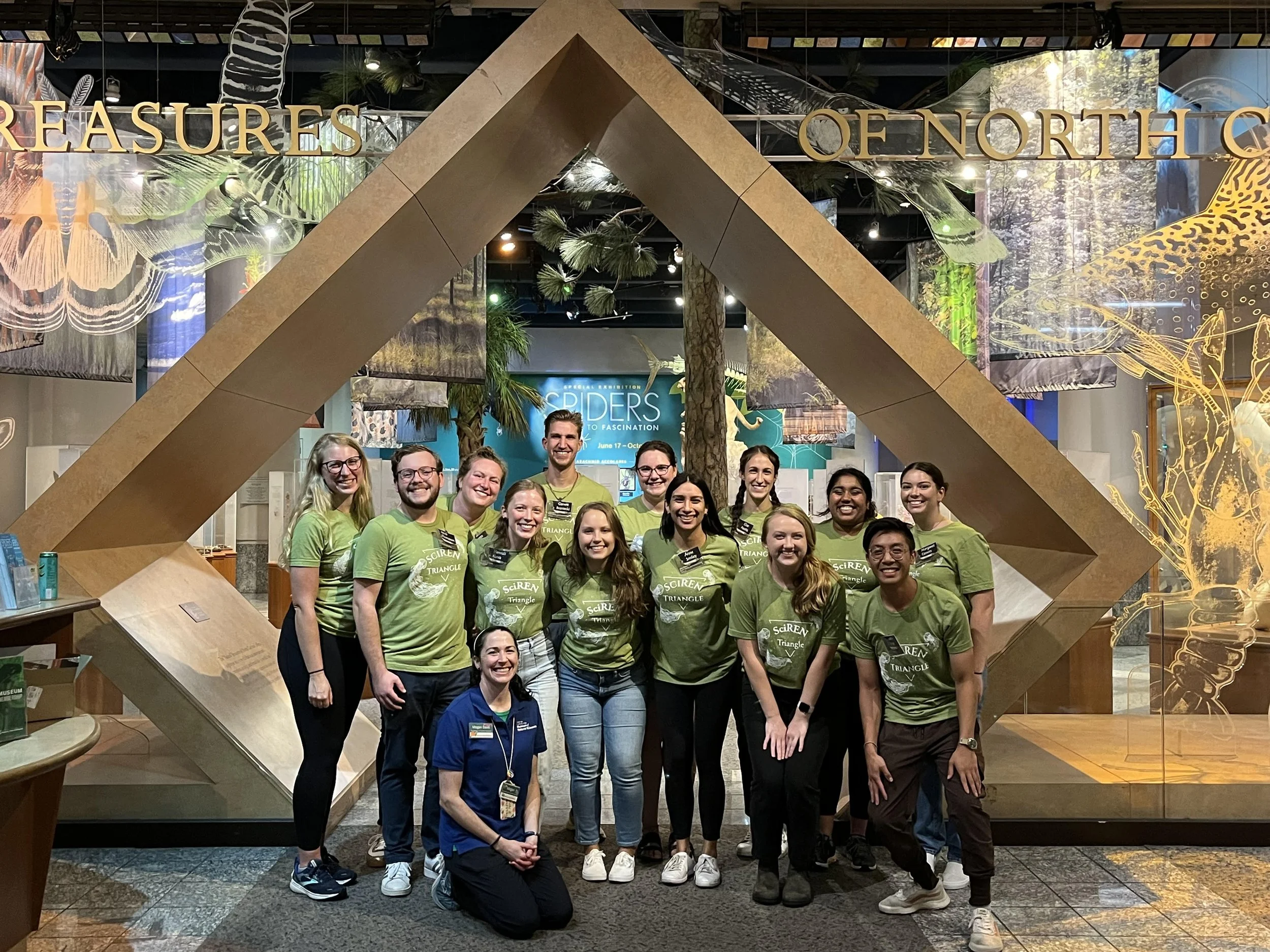Community engagement in essential for translating to science to practice, and K-12 education is critical for inspiring future generations of problem solvers and environmental stewards. Below are lesson plans focused on surface water processes and water quality. Lesson plans are written in 5-E format and meet North Carolina Educational Standards.
Nitrogen Cycle Orange Frenzy
A lesson that involves participants assuming the role of a nitrogen reservoir in the environment and simulating nitrogen transformation processes by tossing oranges.
Add on: include human sources of nitrogen to the environment and experience the frenzy!
Written by Anne Smiley, Melissa Dowland, and Sarah Yelton
Go With The Flow
A hands-on activity to introduce participants to stormwater and factors that influence transport of pollutants.
Written by Adam Gold and Justin Hart
In addition to conducting impactful research, The Center for Public Engagement with Science (CPES) hosts a variety of programs for teachers and students in North Carolina. Their focus areas include air quality, climate, energy, environmental health, outdoor science learning, and water.
Additional Resources:
The Scientific Research and Education Network (SciREN) is a program that connects educators with researchers to integrate current and local research into K-12 curricula. In the Triangle, graduate students write lesson plans that fulfill NC Educational Standards and share them with educators at an annual symposium at the NC Museum of Natural Sciences.
“Knowing is the key to caring, and with caring there is hope that people will be motivated to take positive actions. They might not care if they know, but they can’t care if they are unaware.” - Sylvia A. Earle



